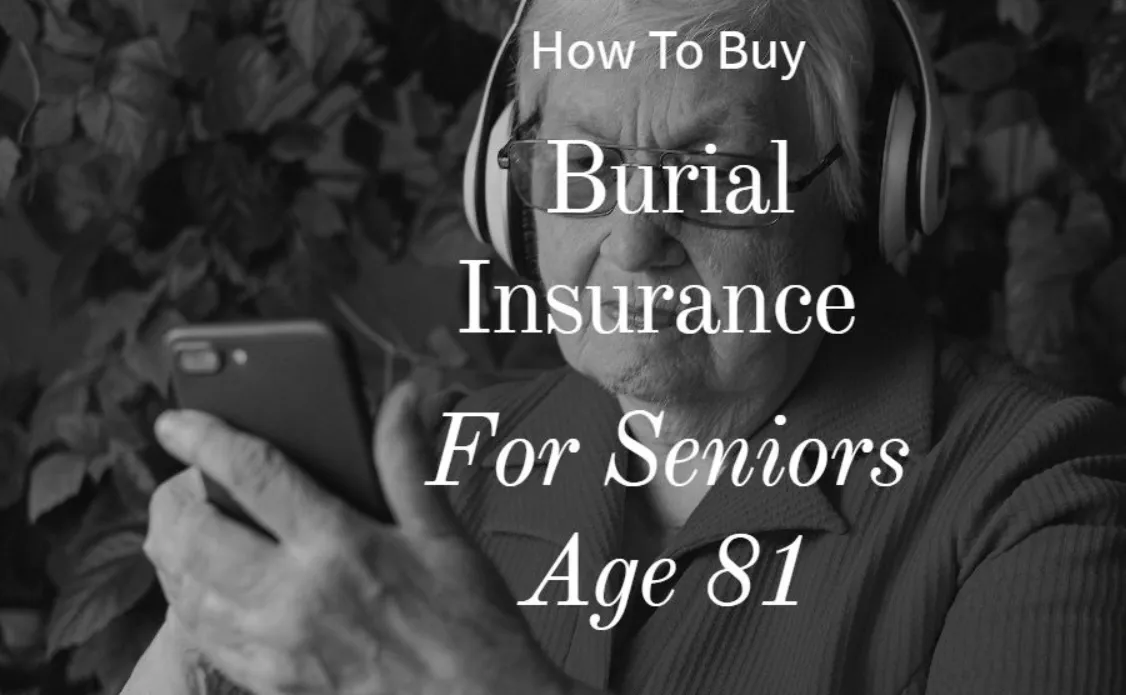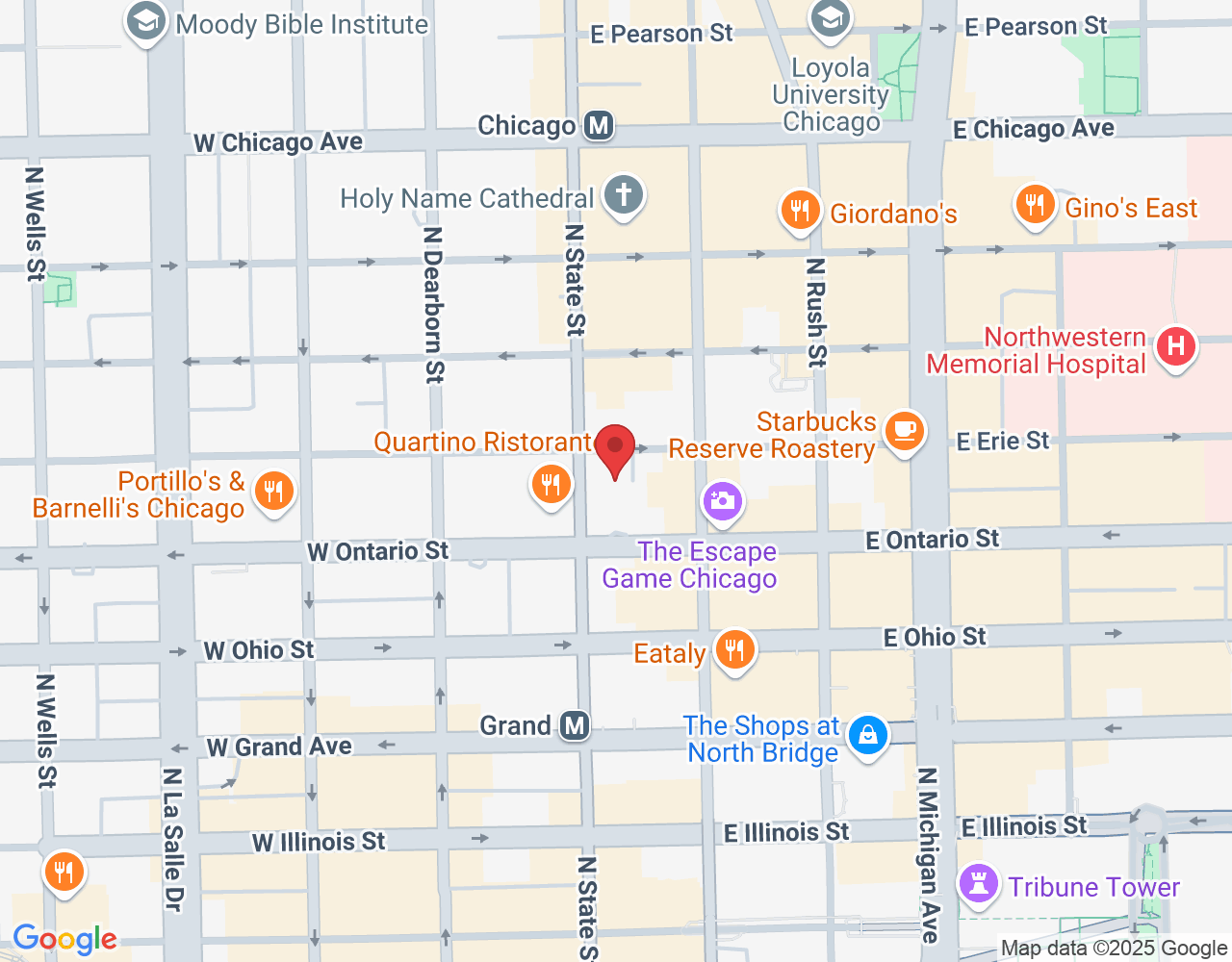
How To Buy Burial Insurance For Seniors Age 81
Buying burial insurance for seniors at age 81 is possible, but it's essential to understand the options available and the factors that can influence the process.
Please feel free to select "Compare Quotes" whenever you are ready to view rates.
What Type of Life Insurance is Best For Seniors Age 81
Above all, when looking for burial insurance for seniors at age 81 you are pretty limited. In fact, term life, universal life, and most traditional whole-life policies most likely aren’t available over age 80.

The simplified issue whole life, however, is intended for people beyond the age of 80.
These are laws that you may be familiar with. They go by a variety of labels to convey their precise nature, which is a simplified problem throughout existence.
Several names are:
Burial Insurance
Final Expense Insurance
Cremation Insurance
Funeral Insurance
End of Life Insurance
Make no mistake, these are ALL the same!

What is Simplified Issue Whole Life Insurance?
Simplified issue whole life insurance offers a hassle-free way to secure coverage without the need for a paramedical exam, unlike traditional whole life or term life insurance policies. This is particularly beneficial for seniors aged 81 and older who are seeking burial insurance.
Instead of undergoing extensive medical examinations, you'll only need to answer a few straightforward health-related questions and provide details about any medications you may be taking. This streamlined process allows for quick approval.
Once approved, you'll be assigned to one of four rating classes, each with its own set of features and waiting periods:
1. Level Premium (Immediate Coverage/Best Rate)
2. Level Standard (Immediate Coverage)
3. Graded/Modified (Typically involves a one-year waiting period followed by a partial payout in the second year, or a partial payout in the first year (30%), followed by 70% in the second year, and full payout in the third year)
4. Guaranteed Acceptance Policy (Two-year waiting period/Return of Premium)
The rating class you're placed in will depend on the responses you provide to the health-related questions. We'll delve deeper into these rating categories later in this post. Additionally, we offer burial insurance options for individuals aged 85 and up to 90.
Before we explore the rating categories in detail, let's take a look at some sample rates.

Burial Insurance Rates for Seniors Age 81
Let's look at some actual rates with major carriers for age 81 now that we are aware of the types of insurance you can get and the rate classes that will affect the cost.


Best Companies For Seniors Over 81 To Get Burial Insurance
Okay, now that you are familiar with rates, the appropriate product, and the meaning of the rating class, let's look at the business that will be writing a check to your loved ones when the time comes.
Priority one should be given to selecting the best carrier for check-cutting. That will actually depend on the following:
Monetary stability (A.M.Best Rating)
Index of customer complaints
Consumer Assistance
We put a lot of effort into the carriers we recommend to our clients. Every three months, we check on our carriers to make sure everything is good.
Based on a combination of financial soundness, customer service, customer complaints, and what the lowest rate might be, we have assembled the top carriers for people over 81.
Navigating the Underwriting Process for Burial Insurance at Age 81
In the realm of senior insurance, it's hard to miss the ubiquitous commercials featuring Jonathan Lawson representing Colonial Penn. And let's not forget the steady stream of solicitations from AARP and Globe filling up your mailbox.
But here's the catch: Are all these policies offering what they claim? It's essential to look beyond the catchy slogans and flashy advertisements, especially when it comes to burial insurance for seniors aged 81 and above.
Many of these policies come with a two-year waiting period, meaning your loved ones may not receive the full benefits if something were to happen within that timeframe. Moreover, the majority of them aren't genuine lifetime policies, despite what the marketing might suggest. Falling into the convenience trap of "Instant Approval" or "No Questions Asked" policies can potentially leave your family financially vulnerable in the long run.
For instance, both Open Care and Physicians Mutual have their own set of waiting period guidelines, adding another layer of complexity to the decision-making process.
But fear not! There's a better way forward. By providing your health information, you can access policies that offer comprehensive coverage without compromising on affordability. Even if you've faced denials in the past, don't lose hope.
In fact, more than half of our clients who were previously denied coverage elsewhere come to us, and we're able to secure them immediate, no-waiting-period coverage that provides peace of mind for them and their loved ones.
Health Questionnaire for Life Insurance Applicants
In order to ensure that our clients receive the most suitable coverage from top-rated providers, we conduct a thorough assessment using the following qualifying questions:
1. Current Health Status:
(a) Is the proposed insured currently confined to a medical facility such as a hospital, nursing home, or long-term care facility?
(b) Does the proposed insured require assistance with daily activities such as bathing, dressing, or using the restroom?
(c) Does the proposed insured use mobility aids such as a wheelchair or oxygen equipment?
2. Medical History:
(a) received a diagnosis of acquired immune deficiency syndrome (AIDS), AIDS related complex (ARC), or human immunodeficiency virus (HIV) infection from a doctor or healthcare professional; or received treatment for AIDS, ARC, or HIV?
(b) been given a diagnosis of, received treatment for, or received advice from a doctor or healthcare provider to seek treatment for any of the following conditions: Alzheimer's disease, dementia, Huntington's disease, sickle cell anemia, myelodysplastic syndrome (MDS), Lou Gehrig's disease (ALS), quadriplegia, paraplegia, Down syndrome, mental incapacity, congestive heart failure, cirrhosis, metastatic cancer, or recurrent cancer
(c) been given an insulin shock diagnosis, been placed in a diabetic coma, undergone an amputation because of a diabetic complication, been given an end-stage renal disease diagnosis, or needed dialysis?
(d) been advised to have an organ or bone marrow transplant or already have?
(e) has been identified by a doctor or other healthcare professional as having a terminal medical condition that would likely cause death during the upcoming 12 months.
3. Has the proposed insured received any of the following in the last 12 months:
(a) medical advice to undergo surgery, diagnostic testing other than for routine screening or for HIV/AIDS-related issues, treatment, hospitalization, or another procedure for which the findings are unknown?
(b) been identified as having heart disease or undergone any type of cardiac surgery by a doctor or other healthcare professional?
4. In the past 2 years,
(a) has the Proposed Insured been diagnosed with, treated for, or advised by a physician or health care provider to receive treatment for any form of cancer (except basal or squamous cell skin cancer)?
5. Has the proposed insured ever:
(a) received care or treatment for, or been counselled by a doctor or healthcare professional to seek treatment for: diabetes before age 50 or diabetes at any age with complications of retinal degeneration (eye), kidney nephropathy, peripheral vascular disease (PVD or PAD), or neuropathy (nerve)?
(b)Hepatitis C,
(c) Chronic Lung Disease, such as Sarcoidosis, Chronic Bronchitis, Emphysema, or Chronic Obstructive Pulmonary Disease (COPD)?
6. Has the proposed insured person sought treatment for any of the following conditions in the last four years:
(a) cancer, leukaemia, melanoma, or any other internal malignancy (apart from basal or squamous cell skin cancer)? been instructed by a doctor or other healthcare professional to do so?
(b) Scleroderma, systemic lupus, or chronic kidney disease?
(c) Multiple Sclerosis, Schizophrenia, Parkinson's Disease, or Bipolar Depression?
7. Has the proposed insured in the last two years:
(a) undergone care or treatment for; or been advised by a doctor or healthcare professional to seek treatment for:
(b) Coronary Artery Disease, Heart Attack, Coronary Artery Bypass Surgery, Angioplasty, Cardiomyopathy, irregular heart rhythm, or Valvular Heart Disease with surgical repair or replacement?
(c) Have you ever experienced a transient ischemic attack (TIA), a stroke, or both? If so, when?
8. Has the proposed insured:
(a) been convicted of, or is presently undergoing trial for, a felony in the previous two years?
(b) Have you ever been found guilty of reckless driving or operating a vehicle while intoxicated or impaired by drugs or alcohol more than once?
(c) misused or abused prescription medicines, or utilized illicit drugs of any kind?
9. In the past 2 years,
(a) Has the proposed insured person ever been admitted to the hospital by a doctor or other healthcare professional for a mental or nerve problem in the previous two years?
10. Has the proposed insured visited a doctor in the last 12 months
(a) for a persistent cough, an unexplained weight loss of more than 10 pounds, exhaustion, or unexplained gastrointestinal bleeding?
To choose the most affordable life insurance with an A+-rated provider, the following questions must be addressed.
Even if you gave a "No" response to one of these questions, you are not automatically rejected. Every carrier has a market for people with health impairments, and this helps us decide where to bring you.
Claiming Funeral Insurance at Age 81: What You Need to Know
When a loved one obtains funeral insurance at the age of 81, there are important considerations to keep in mind when it comes time to file a death claim.
As the beneficiary, there are two key factors to be aware of before initiating the claim process.
Firstly, it's crucial to determine whether the waiting period for the coverage of your loved one has elapsed. Most funeral insurance policies have a waiting period, typically ranging from six months to two years, during which full benefits may not be available.
Secondly, it's important to ascertain whether the policy has passed the contestable period, which is usually two years from the activation date. During this period, the insurance company has the right to contest the coverage if the insured's death is deemed suspicious or if there are discrepancies in the information provided in the application.
In the event of a claim, the cause of death is a significant factor in determining whether the insurance payout will be granted. If the insured passed away due to an accident, natural causes, or any other cause that was accurately disclosed in the application, the insurance company is typically obligated to honor the claim.
However, if the cause of death is related to an undisclosed pre-existing condition or if fraudulent information was provided in the application, the insurance company may contest the claim and withhold the payout.
To ensure a smooth claims process, it's imperative to answer all application questions truthfully, accurately, and comprehensively. Any discrepancies or omissions could potentially delay or jeopardize the payout.
By adhering to honesty and transparency throughout the application process, beneficiaries can mitigate the risk of claim denial and ensure that their loved one's funeral expenses are adequately covered when the time comes.
Death Claim Process and the Importance of Death Certificates
When a loved one passes away, there are two essential documents needed to facilitate the death claim process: a copy of the death certificate and a fully completed death claim form. This holds true, especially if your loved one, aged 81, had a burial insurance policy in place.
Obtaining these documents promptly is crucial for expediting the receipt of the death benefit. If your loved one had been suffering from an illness and you anticipate their passing, it's advisable to discuss the issuance of the death certificate with their attending physician in advance. This proactive approach can help streamline the process and ensure timely access to the necessary documentation.
In my personal experience, when my mother passed away in 2016, I was able to obtain the death certificate within five hours of her passing. Being prepared and proactive can make a significant difference in navigating the administrative aspects of a loved one's passing.
Furthermore, beneficiaries are required to complete the death claim form, which must be submitted to the carrier's claim department via mail. Once these documents are received and processed, the death benefit will be disbursed to the designated recipient. In some cases, beneficiaries may also have the option to receive the funds via wire transfer for added convenience.
By promptly securing the death certificate and diligently completing the necessary paperwork, beneficiaries can ensure a smooth and efficient death claim process, allowing them to focus on honoring their loved one's memory during this difficult time.
Final Thoughts
Furthermore, beyond identifying the best product tailored to your needs at the age of 81, it's essential to grasp the most critical step in the process: knowing what pitfalls to steer clear of.
If you have any inquiries or require further assistance, please don't hesitate to reach out to us at (855) 468-8900. Alternatively, you can simply fill out the form provided to compare costs and explore your options in greater detail.
By avoiding common pitfalls and making informed decisions, you can ensure that you secure the most suitable product to meet your needs and provide peace of mind for you and your loved ones.
Evaluate quotes from leading insurance providers
Compare quotes from top insurance carriers
Best Plan For Me
Qualified Health Impairments
This site provides life insurance information and quotes. Each rate shown is a quote based on information provided by the carrier. No portion of BestBurialPolicy.com may be copied, published or distributed in any manner for any purpose without prior written authorization of the owner.




